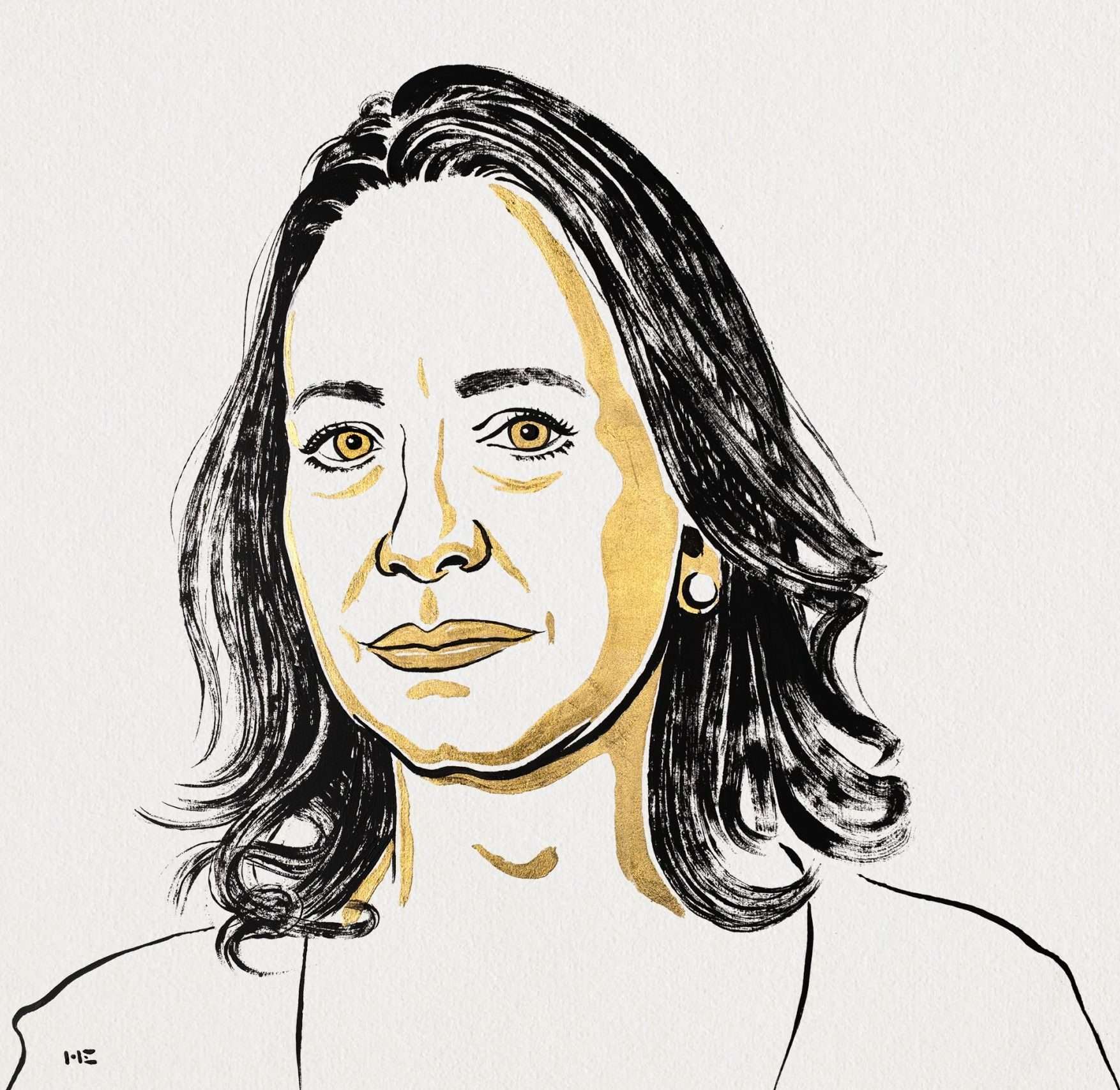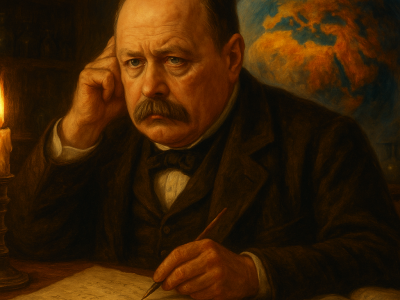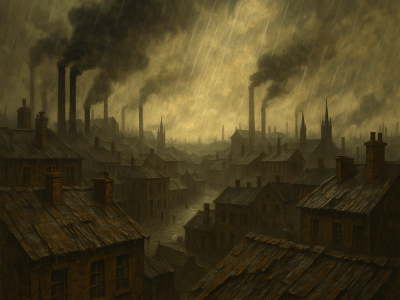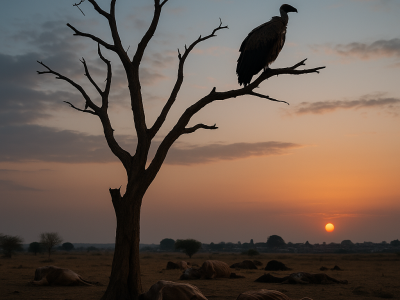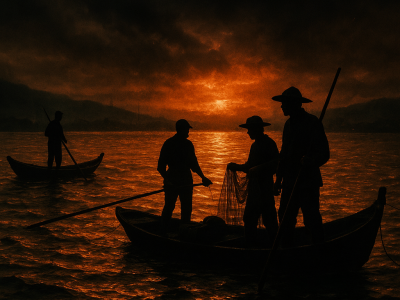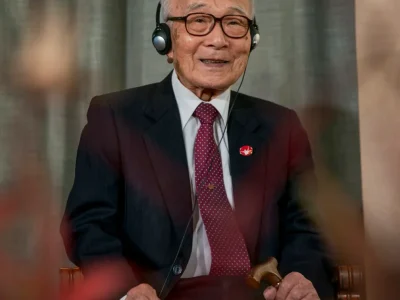In a country where speaking out can cost one’s freedom or one’s life, María Corina Machado has never stopped speaking.
Her voice, calm yet resolute, has become the heartbeat of Venezuela’s struggle for democracy. In October 2025, that voice was heard around the world as the Norwegian Nobel Committee announced Machado as the recipient of the Nobel Peace Prize, citing her “tireless work promoting democratic rights for the people of Venezuela and her struggle to achieve a just and peaceful transition from dictatorship to democracy.”
In the dim corridors of Caracas politics, Machado’s name has long been synonymous with defiance. Now, it stands for something larger: the belief that ballots, no matter how threatened, still matter more than bullets.
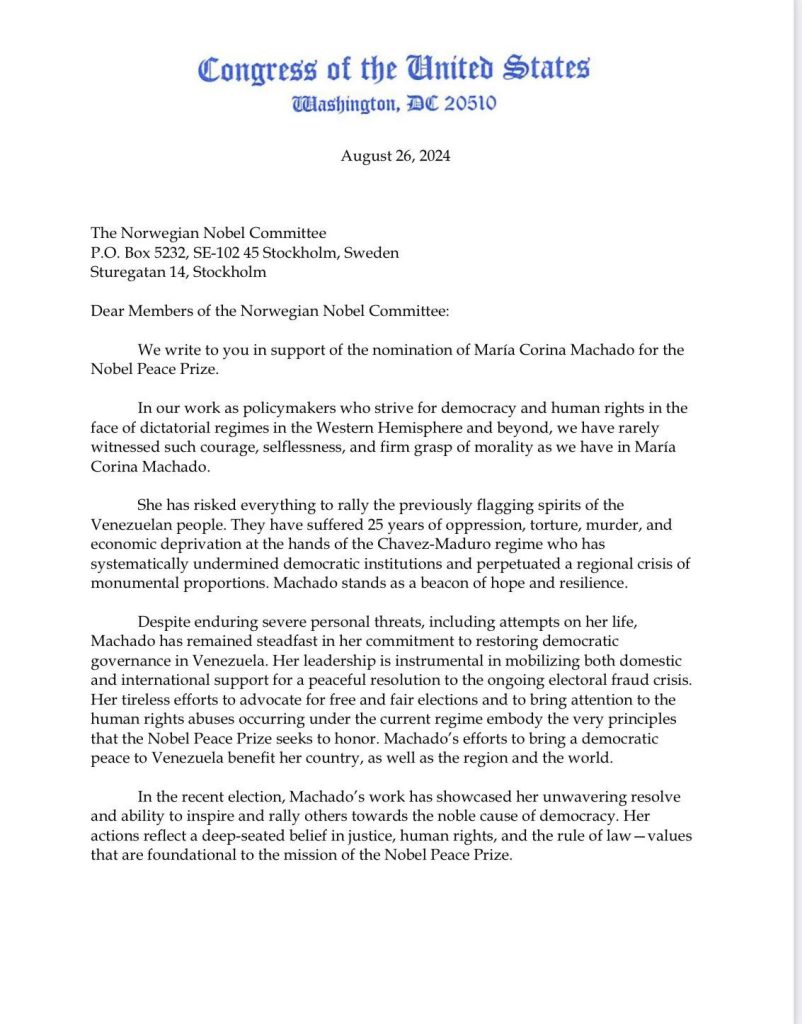
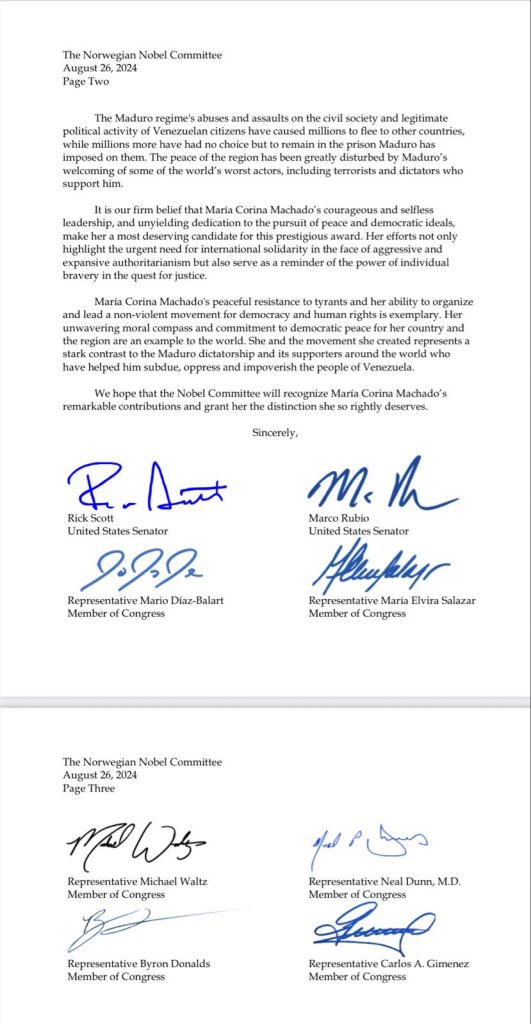
An engineer who refused silence
Born in 1967, María Corina Machado trained as an industrial engineer and later studied finance. Her path might have remained within Venezuela’s once-vibrant private sector had she not been drawn to a cause greater than business. In 1992, she founded the Atenea Foundation, an organisation dedicated to helping street children in Caracas. It was an early sign of a civic conscience that would later define her political life.
By 2002, Venezuela was already slipping into authoritarian control under Hugo Chávez. Machado co-founded Súmate, a non-governmental organisation devoted to voter education and the defence of electoral transparency. The group became a rallying point for citizens who believed in constitutional democracy. Her decision, she later said, was “a choice of ballots over bullets.”
That phrase captured her philosophy and set her apart in a region where political change has too often come through violence. She chose civic resistance over revolution, law over force, and dialogue over silence.
A democracy dismantled
To understand Machado’s fight is to understand Venezuela’s collapse. Once one of Latin America’s most stable democracies, enriched by oil and buoyed by strong civic institutions, the country has descended into authoritarianism, corruption, and economic despair.
Over the past decade, millions have fled, nearly eight million Venezuelans, according to international estimates, creating one of the world’s largest refugee crises. Inside the country, poverty and hunger have deepened, while dissent has been met with prison cells, exile, and fear.
The Venezuelan regime, now under Nicolás Maduro, has weaponised every lever of power: courts, the media, and the military. The result is a state where power protects itself at all costs. For those who stay and resist, politics is not a profession, it is an act of survival.
The woman who united a divided opposition
Venezuela’s opposition has long been fragmented, split between moderates seeking negotiation and hardliners calling for total resistance. Machado’s greatest achievement may be her ability to bridge those divides.
Through her party Vente Venezuela, and later the Soy Venezuela alliance founded in 2017, she became the unifying figure the opposition lacked. She persuaded rival groups to focus on their shared goal: restoring representative government through free and fair elections.
The Nobel Committee recognised this unifying power as central to democracy itself: the ability to defend the principles of popular rule even among those who disagree. In a region often polarised by ideology, Machado’s leadership showed that unity need not erase difference, it can be built upon it.
2014: Expelled, but not silenced
Her popularity soared in 2010 when she was elected to Venezuela’s National Assembly with a record number of votes. Her speeches, laced with data and moral clarity, exposed the government’s abuse of power and resonated with citizens weary of propaganda.
By 2014, her defiance crossed the line for those in power. The regime expelled her from parliament, accusing her of treason for addressing the Organisation of American States. Her seat was taken, her passport confiscated, and her movements restricted.
But Machado refused to leave the country. “This is my home,” she told supporters. “And I will fight for it from within.”
For a nation where many dissidents have gone into exile, her decision to stay became a symbol of steadfastness.
2024: The election that changed everything
In 2023, Machado announced her candidacy for the 2024 presidential election. Her campaign quickly gathered momentum, uniting a weary population around the promise of peaceful change. Polls suggested she could win decisively.
Fearing her popularity, the government barred her from running, citing spurious legal restrictions. Yet she did not withdraw from the fight. Instead, she backed another candidate, Edmundo González Urrutia, from a different opposition party, and rallied voters to the cause of democracy itself.
The campaign that followed was a civic movement unlike any other in modern Venezuelan history. Hundreds of thousands of volunteers, crossing party lines, trained as election observers. They risked harassment, detention, and torture to protect ballot boxes and document the vote count before the regime could destroy the evidence.
The results were clear: the opposition won by a substantial margin. International observers confirmed widespread evidence of fraud after the regime declared itself victorious. Yet, in the face of repression, Venezuelans had proved something profound that courage can be contagious, and truth harder to silence than fear.
Democracy under siege worldwide
The Nobel Committee’s choice this year carried a message that transcends Venezuela.
In 2024, the world saw more national elections than at any point in history but, paradoxically, fewer truly free and fair ones. From Asia to Europe to Africa, populist and authoritarian regimes have tightened control through digital surveillance, manipulated ballots, and the persecution of journalists.
The Committee’s statement was blunt: “Democracy is a precondition for lasting peace.” By honouring Machado, it reminded the world that peace is not merely the absence of war but the presence of accountable governance. Where democracy dies, conflict often follows.
Machado’s recognition also aligns her with a long lineage of peaceful resisters: from Lech Wałęsa in Poland to Liu Xiaobo in China. Each proved that non-violent struggle can reshape nations.
Living in hiding, standing tall
In the months following the disputed election, Machado faced escalating threats. Reports suggest she has spent periods in hiding, constantly moving to evade surveillance. Yet she continues to issue statements, meet supporters, and call for unity through encrypted channels and underground networks.
Her persistence, despite personal risk, has inspired millions. Across Latin America, she has become a symbol of civilian courage, proof that one person’s moral clarity can outshine a state’s machinery of repression.
Her story echoes that of past laureates who endured imprisonment or exile. But what distinguishes Machado is her insistence on staying. She could have fled, as many of her colleagues did. Instead, she remains in the country she seeks to change.
The moral architecture of her movement
Machado’s philosophy rests on three democratic pillars: judicial independence, human rights, and popular representation. Her speeches rarely invoke ideology. Instead, they return to the everyday: a mother unable to find medicine, a student silenced for speaking out, a worker paid in worthless currency.
This pragmatic empathy coupled with her refusal to endorse violence has given her movement moral legitimacy even among sceptics. The Nobel Committee emphasised that she has “never wavered in resisting the militarisation of Venezuelan society.”
Her supporters often quote her most famous line: “Democracy is not a slogan; it is the discipline of freedom.”
The global message from Oslo
When the Nobel Committee chair announced Machado’s name in Oslo, the applause was both celebratory and solemn. It marked not just recognition of her struggle, but a warning about the fragility of democracy itself.
In its citation, the Committee wrote: “Maria Corina Machado meets all three criteria stated in Alfred Nobel’s will for the selection of a Peace Prize laureate. She has brought her country’s opposition together. She has never wavered in resisting the militarisation of Venezuelan society. She has been steadfast in her support for a peaceful transition to democracy.”
The award signals that peace and democracy are inseparable, that the tools of democracy are, themselves, the tools of peace.
A ripple beyond Venezuela
Machado’s victory reverberates across borders. In Latin America, where democratic erosion has returned to the headlines, from Nicaragua to El Salvador her courage serves as a reminder that institutions are only as strong as the citizens who defend them.
For activists in Hong Kong, Myanmar, or Belarus, her recognition affirms that the world still sees and values those who resist tyranny through peaceful means.
The challenge, of course, lies in what happens next. Will international attention shield her from further persecution? Will the prize strengthen the opposition’s hand or provoke harsher repression? No one knows. But for now, the spotlight protects her if only slightly from the darkness she has spent her life confronting.
At a time when the world seems increasingly cynical about democracy, Machado’s story restores a measure of faith. Her life demonstrates that democratic struggle need not rely on charisma or violence, but on organisation, persistence, and hope.
María Corina Machado’s recognition underscores a universal truth: democracy is never won once and for all. It must be renewed, defended, and believed in, especially when it is most at risk.
Profiles of the laureates
Maria Corina Machado, (Born: 1967, Venezuela) was awareded Nobel Peace Prize 2025 “for her tireless work promoting democratic rights for the people of Venezuela and for her struggle to achieve a just and peaceful transition from dictatorship to democracy”
Prize Amount: 11 million Swedish kronor (~1.2 millon USD).
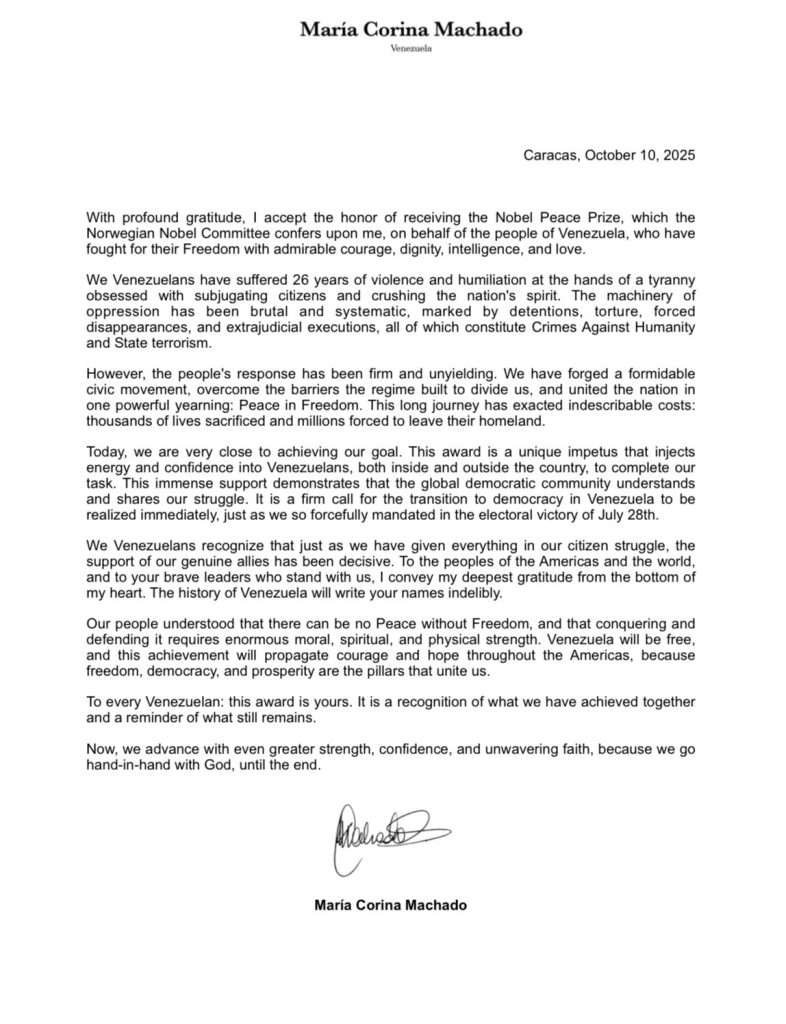
Reference
Royal Swedish Academy of Sciences. (2025). Nobel Prize in Peace 2025. https://www.nobelprize.org/prizes/peace/2025/press-release/
Featured photo credit: Ill. Niklas Elmehed © Nobel Prize Outreach

